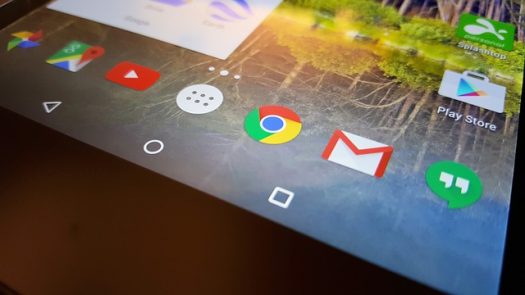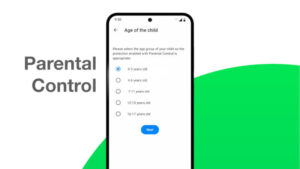Android may be a free operating system, but unlike GNU/Linux, keeping it free is next to impossible if you want to make it useful.
Roblimo’s Hideaway

Do you ever look at your Android phone and wonder how much of the software on it is open source? I just did, and I was surprised at how little FOSS I had on it. Could I change that? After a bunch of searching, I did. But only a little.
Android itself is an open source project. Google controls the main branch and can keep you from using the “Android” trademark if you fork the project, but otherwise you can do anything you like with the code.
Now let’s talk about Android applications. Maybe I shouldn’t admit this in public, but until the idea for this essay came up last week in a conversation with FOSS Force editor Christine Hall, I hadn’t thought much about Android app licenses, not even when choosing apps for my own use.
Let’s start by talking about keyboard apps, which are essential for almost everything we do on our Android phones besides conversing by voice. To the best of my knowledge, only one mainstream Android keyboard is open source: AnySoftKeyboard. If you are someone who types in the classic sense, clicking on each letter one at a time, this is top-drawer software. If you use many languages it is probably the best keyboard around. But if you’ve gotten used to swipe (gesture) typing, AnySoftKeyboard is not for you, because it lacks this feature.
Now we come to a philosophical question: do I choose an open source — or better yet, free software — app over a much better proprietary one? Richard M. Stallman may yell at me (in fact, he has) for saying I’ll use free software whenever it’s practical to do so, but if proprietary software is all that will do what I need done, I’ll use it.
So I currently use SwiftKey on my Android phone. I don’t remember why I first started using it, but it became a habit. Yes, it’s owned by Microsoft and I find that irritating. I really need to try Swype and a couple of others, possibly including semi-abandoned Fleksy, which rumors in mid-2016 said might be going open source, but it turned out that only “some components” were. So no cigar there.
And now, a word about Open Camera. This is the best Android camera app I’ve found for my LG Stylo 2, which has an amazing camera considering its sub-$100 price tag. I’ve had a few other phones where proprietary camera apps worked better, but with my current hardware, Open Camera can’t be beat. Period.
Flashlight: I use Minimal Open Source Flashlight. Its only control is an on/off switch in the middle of the screen. No flashing, no color options. On or off. That’s exactly what I need if I’m stumbling out of bed in the middle of the night. A fine app. Works reliably. Six stars!
Malware: I use commercial (but beer-free) Malwarebytes for Android mostly because the Windows version has knocked out some nasties other anti-malware problems couldn’t handle. Know a good open source alternative? I’d love to try it.
Rotation Lock Open Source is another super-simple open source Android app. It locks your phone in portrait mode when you click on its icon. Click it again, unlocked. That’s it. The last update was in 2012. It still works fine, and meets my super-simple screen orientation control needs. If you need fancier rotation control, you’ll want to check out some of the many proprietary apps that do this sort of thing. I consider Rotation Control the best of the lot, but that’s purely personal preference.
And then there’s Prey. I found Prey while researching this article. It’s an open source “help you find it” and theft recovery app available for most computing devices, not just Android phones. Why didn’t I already have Prey on my phone, laptop, and desktop? Because I was ignorant, as in, “I didn’t know about it.” Now I do. And I have it installed on my three computing devices, which is coincidentally the maximum number you can register for free on a personal account. They make their money selling more feature-rich, higher-capacity plans. This is great stuff. Check their site. Read their blog. Check the code if you’re so inclined. Now that you know about Prey, you have no excuse for not using it. Here’s the Google Play download link to get your started.
Just about every other app on my phone is controlled by a publisher or vendor, like the Washington Post and (local newspaper) Herald Tribune apps, Pandora, and a raft of Google stuff. There’s just no way to run a full-featured Android phone without a bunch of proprietary software, and I suspect this is an even worse problem for people with the money to own Apple phones — not that an old man on Social Security (like me) would know.
I’ve only mentioned a few open source Android apps, because I’m writing about my own experience here, and my needs are simple. F-Droid and Fosdroid list hundreds more, many of which are not on Google Play. Want lots of Android games? They have them. Since I’m not an on-screen game person, I can’t tell you which ones are good and which ones aren’t. That’s a separate article for someone else (you?) to write.
In any case, if you know any good open source Android apps, please tell the rest of us about them. Half the reason I wrote this article was to get your input. I don’t know everything — as both my wife and my editor will happily tell you.
Robin “Roblimo” Miller is a freelance writer and former editor-in-chief at Open Source Technology Group, the company that owned SourceForge, freshmeat, Linux.com, NewsForge, ThinkGeek and Slashdot, and until recently served as a video editor at Slashdot. Now he’s mostly retired, but still works part-time as an editorial consultant for Grid Dynamics, and (obviously) writes for FOSS Force.










In alphabetical order: Adaway, AFWall+, Amaze, AnkiDroid, Barcode Scanner, Calendar Widget, FBReader, Firefox, Hews, KDE Connect, Keepass2Android (not FOSS), Kiwix, Leafpic, Libretorrent, Lightning, Loop Habit, Loyalty Card, Material Player, MaterialFBook, Materialistic, Mozilla Stumbler, Native Clipboard, Netguard, Newsblur, Open Comic, OpenVPN for Android, Recurrence, Red Moon, RedReader, Simplenote, SPMC, Telegram, Wallabag, Weather notification, Wi-Fi Privacy.
I use 90% of these daily. The rest I’m still experimenting before I stop using a non open source alternative.
Thanks for the ideas and the software to check through. The easy one will be MOS Flashlight, because the “extra features” of some others are a pain when I’m looking for the floor. Sorry I don’t have any research to match yours for FOSS apps, but will start paying more attention.
Android is not really FOSS.
Google’s AOSP (Android open source project) is FOSS, but that isn’t what is running on your phone.
Every phone manufacturer is generally running a customized Android, and even the rare plain vanilla builds of AOSP for phones contain non-FOSS drivers in the kernel (which has always made me wonder how they are able to legally distribute it at all).
The various individuals and teams that release custom Android images for particular phones also are generally very-very bad at sharing and documenting their work, preferring instead to offer binary-only downloads on the Android developer forums. Yuck.
Android is an unfortunate mess when it comes to FOSS.
However it’s a Stallman-esque paradise compared to iOS and Windows Phone.
I don’t even have an android phone. 🙂 I have a samsung phone, yes. But just the one that is used to make and answer phone calls and listen to some music through its simple music player. Nothing more, Nothing less. And that’s more than enough for my needs. When I want to be a bit more productive, I use a full-fledged desktop or laptop.
A practical approach is to install F-Droid (https://f-droid.org) and pick your apps from there only.
Unfortunately, this doesn’t take in consideration the underlying android stack (are the drivers for phone components free, for example?) or the proprietary add-ons that many manufactures have grown quite fond of including in the factory settings. Samsung, who tries to be the Apple of the Android world, is particularly obnoxious with the latter.
And lastly, there are the proprietary services and networks that these phones require to work, and against which we can do very little…
For a good open-source keyboard look at Hacker’s Keyboard. You can find it on F-Droid, and it has all the keys you need in a standard layout for complex terminal and Vi commands, etc. I am not affiliated with the project, just a happy user.
Until I read this I never gave the amount of open source software on my Android devices a thought.
Now, I will be checking some of those listed to see if they will work for me, and get rid of the non-FOSS software if it will.
Another cool Foss app I use every day is “missed notification reminder”, and for those phones without a notification LED is a godsend. It sends an audio notification at various intervals for the active notifications in your shade.
Nice article! Since you have Android v6 Marshmallow, have you tried Termux on it? Also, I find Debian noroot to be great on my Android device V5 and below. I have full LibreOffice loaded and when at home I use Chromcast to the big screen TV.
Other software I have of dirrent Android phones for experimenting: PAW Server (great WEB server and you can have PHP install on it), Termux with [Node.JS, OpenSSH, and any packages as needed], SSH Server by Ice Cold Apps (for those devices that is not on Android v5+, SL4A python. I also fix up beatup ones, teach and give it needy family. I think its great to spread Linux in this fashion.